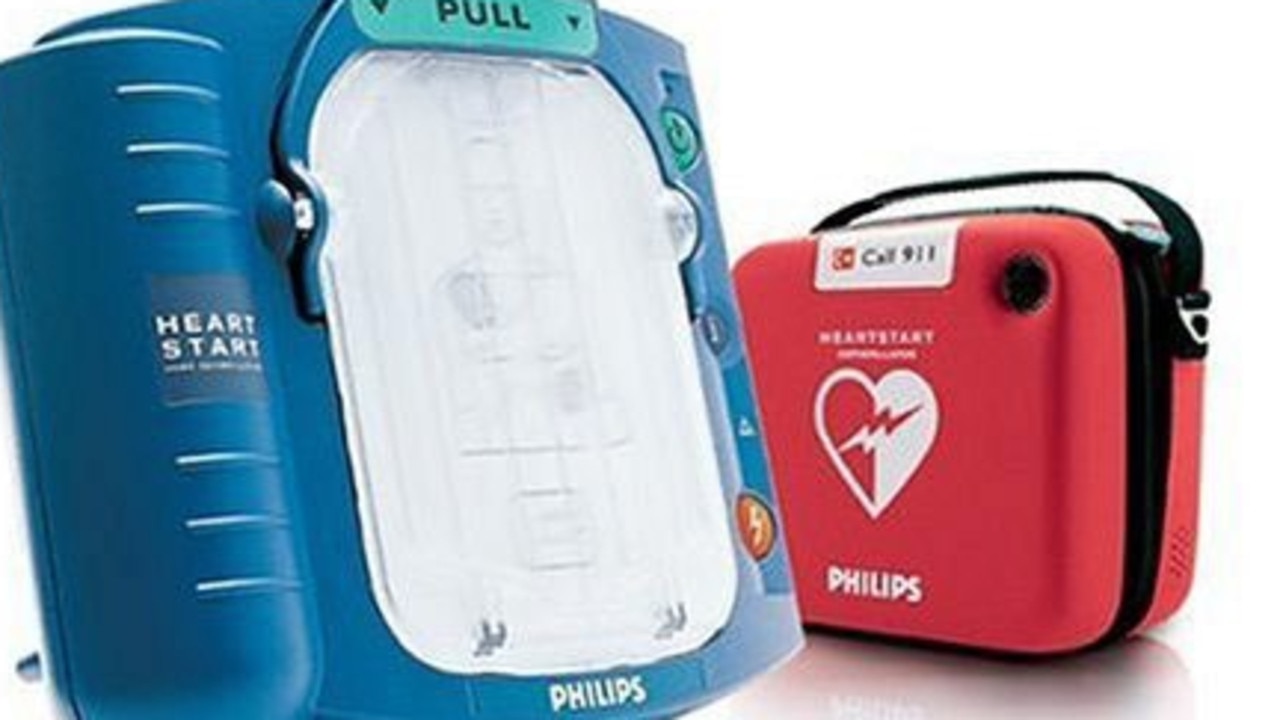Ballarat High School: Defibrillators not mandatory in Victoria despite health scare
A health emergency at Ballarat High School has exposed a major issue that teachers fear could risk lives.

Teachers fear students’ lives are at risk because lifesaving heart equipment is not mandatory in Victorian schools, after a student suffered a medical episode on school grounds.
A student at Ballarat High School required emergency treatment in July last year, which resulted in a staff member performing CPR until paramedics arrived.
The student was resuscitated, but the school did not have a defibrillator, also known as an Automatic External Defibrillator (AED), on campus at the time of the incident, prompting a demand for answers over why they are not supplied to all schools to begin with.
It is not currently compulsory for schools or workplaces to supply defibrillators, which give an electric shock to someone suffering from cardiac arrest, but they are commonly available in public places such as shopping centres or sporting facilities.
A teacher at Ballarat High School, who wished not to be named, told the Herald Sun that staff were briefed on how to use the defibrillators, but they “sat in a box” and were not placed around the school for months after they arrived.
“No one knew where they were. A defibrillator is such an important thing to have, and you would assume that a school of about 1500 (students) would have numerous defibrillators,” they said.
“I can’t understand why they’re not (compulsory) like they are in shopping centres and in other big complexes.
“It’s a no-brainer. I thought: ‘are you kidding me?’”
They said potential funding shortfalls left students in public schools in more danger of not being able to be revived by a defibrillator compared to pupils in private schools, where the machines were often more readily available.
“It really shouldn’t be like that. We are talking about kids, their lives.
“There’s going to be differences with public schools and private schools in terms of facilities and opportunities, but when it comes down to it, if we haven’t got devices that could help in a life saving situation, that’s concerning.”
Two defibrillators were delivered by the end of term three amid statewide shortages of the machine.
Meanwhile, Loreto Mandeville Hall in Toorak which has 1200 students across its primary and secondary school, has five defibrillators on campus.
And Scotch College in Hawthorn, which has about 1800 students from Prep to Year 12, has at least eight.
St John Ambulance Victoria chief executive Gordon Botwright said Ballarat High School should have invested in the machines long before the incident last year, and recommended all schools invest in them because cardiac arrests were “indiscriminate” across age groups.
“The school should have thought about having a defibrillator long before this incident happened,” he said.
“It is an absolute necessity.”
Mr Botwright called on the Andrews government to mandate the machines in all schools, saying access to defibrillators fell short on a list of competing health and funding priorities amid the pandemic and flow-on surgery delays.
“We’re talking about a critical issue here in the community that for some reason hasn’t quite resonated with government,” he said.
“Having funding for making defibrillators available is only going to improve survival.”
Defibrillators cost between $1300 and $3000 in Australia.
A recent study by Monash University found that incidents in which defibrillators were used in schools and universities skyrocketed from four per cent between 2008 and 2010, to 47.5 per cent by 2019.
A Department of Education spokesman said: “The health and safety of students and staff in Victorian schools is our highest priority”.
Catholic schools also supply defibrillators on an individual basis.
Melbourne Archdiocese Catholic Schools (MACS) Acting Executive Director Dr Edward Simons said all Catholic schools complied with legal first aid requirements, which included training on how to use a defibrillator in some schools.
Education Minister Natalie Hutchins was contacted for comment.





